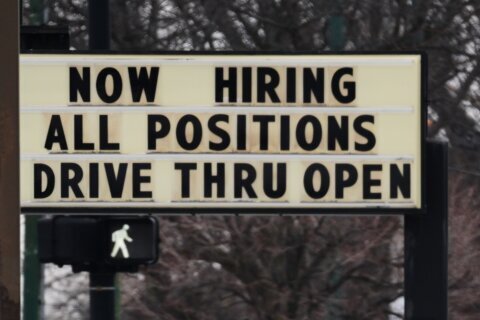
If you blow a job interview — or at least think you did — it may not be the only chance you get.
The first step is to follow up your less-than-impressive interview with a quick email, according to advice from Rachel Loock, associate director of executive MBA career coaching at the University of Maryland’s Robert H. Smith School of Business.
“Using a message like: ‘It might have been obvious I was a little nervous in the interview, but I remain very interested in the opportunity.’ That works well,” Loock told WTOP.
“You want to have the self-awareness to recognize that perhaps you didn’t do as well as you could have,” she said. “If there was some sort of extenuating circumstance, you can share that very, very briefly, but be careful not to sound like you’re making excuses.”
Loock also has tips for younger job candidates who may not have much interview experience and find themselves nervous leading up to and during the interview.
“Arrive a few minutes early at the interview site to collect your thoughts. Be ready to describe how you fulfill the job requirements with specific examples,” she said
Another strategy?
“Practice ahead of time,” she said. “This will go a long way in managing your nervousness and the more your interview the easier it gets.”
For older workers who have been through several interviews, either successful or failed ones, there are obvious do’s and don’ts to keep in mind for the process. But for younger prospective employees, Loock doesn’t hesitate to point them out.
“Making good eye contact and using good listening skills are really important to a successful interview,” she said. “And make sure you turn your phone off while you’re in the interview so you are not distracted by that.”
She also suggests not letting one bad interview keep you from applying to other open positions at the same company, as long as there are no rules prohibiting it.
“I’ve known students who applied to one company, weren’t selected the first time around, and then were selected the second time around,” she said.








